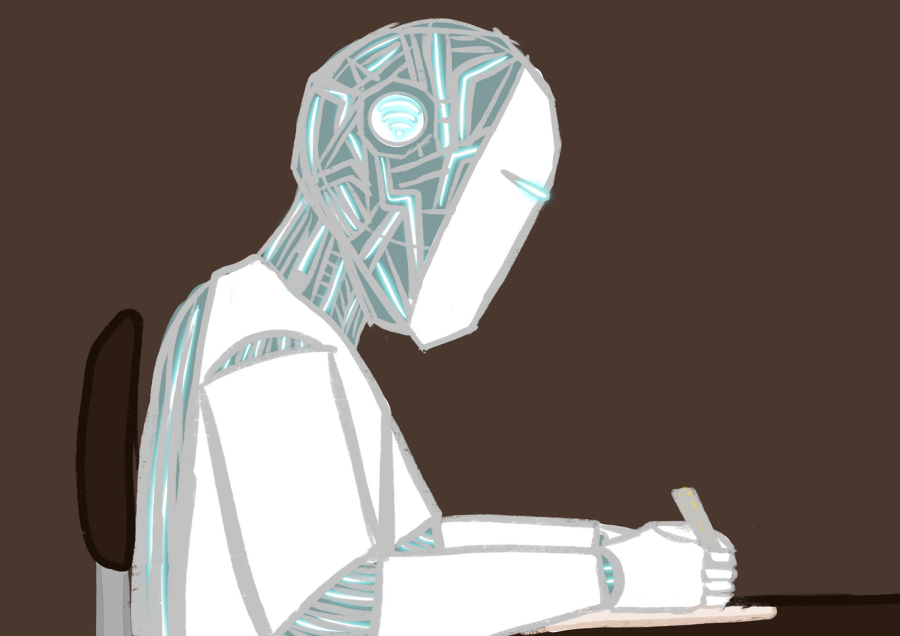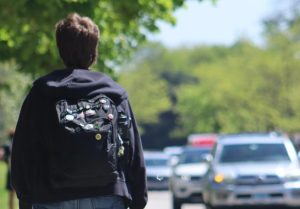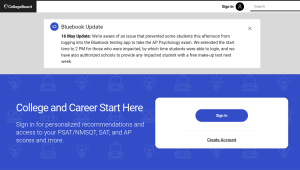ChatGPT’s release sparks concern over academic dishonesty
ChatGPT offers a wide array of different features, some of which can be used by students to cheat on homework and exams.
January 25, 2023
ChatGPT, an intelligent chatbot created by OpenAI, was launched on Nov. 30 2022, and has since taken the world by storm. For years, people have pondered whether any computer can pass the Turing test and pass for human speech. As of right now, it seems that ChatGPT is the greatest contender for that milestone. While many computer scientists and researchers discuss the grandiose effects and possibilities of the software, students at Metea have other questions.
“I have only used it once to see how it would respond to an AP Euro FRQ prompt,” sophomore Ben said. Ben’s name has been changed for the purposes of anonymity. “It did surprisingly well. I am not sure if it can be tracked for plagiarism, either.”
Because ChatGPT does not save conversations without the user’s permission, those who use it to cheat or act dishonestly can not be tracked or monitored. Unlike a multi-functional calculator or automatic essay writer, ChatGPT can interpret language in a nuanced and multifaceted way that allows for easy use. As of right now, it is still free as well.
“In my experience, there are students who are destined to try cheating, whether it is through a test bank or a chatbot,” Computer science teacher Frederick Greenwood said. “The real question is: how much is your integrity worth? Do you want to be the student that cheats when things get tough? ChatGPT is just another way of asking that question.”
Greenwood’s reservations about ChatGPT make more sense when one uses the application for themself. While many are amused by ChatGPT’s response to simple questions, the bot’s ability to create large, nuanced and enticing stories offers students the ability to plagiarize entire assignments with a couple of keystrokes. While the district has blocked ChatGPT on Chromebooks for this very reason, students have no barriers to accessing it at home or on their phones.
“I do not use ChatGPT myself, but I do know someone who has,” junior Raymond Ryu said. “I am not convinced that it is a widespread problem, though.”
As for those that do use it to cheat, they proclaim that they are not generally dishonest. Ben justifies his use by discussing how stressful and burdensome life can get, and how ChatGPT help can lighten his workload.
“I do not think I am a bad student,” Ben said. “I try my best in class. I do not slack off. Sometimes, when extracurriculars, family and life get in the way, you need to get some stuff off your plate. If that means some light cheating here and there, then so be it. ChatGPT makes it easier.”
One major difference between ChatGPT and various other software is that it explains step-by-step what it is doing while answering questions. When prompted with a physics question, the application displayed the formula and began explaining step-by-step how it was dissecting the problem to find the variable. In this way, ChatGPT may be a way to learn that, while giving you the answer with no work on your part, offers an explanation as to how to get to the final answer.
However, teachers and counselors alike consider the use of ChatGPT to get answers an academically dishonest act. For now, despite the fascinating depth of the software’s answers, it can not be used in tandem with schoolwork.
“Outside of all the ways ChatGPT can be used to cheat, the technology is fascinating,” Greenwood said. “We have yet to see the true capabilities of this type of software, and it is rather exciting to see what it can do in the future.”








